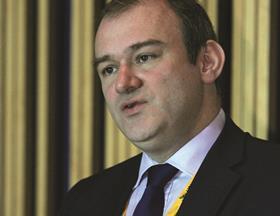Bill designed to set framework to pay for new nuclear power stations

The government will today publish the long awaited draft energy bill designed to facilitate the construction of a new wave of new nuclear, gas and renewable energy generation infrastructure.
The bill is expected to use long-term contracts with utilities providers to provide a stable market for energy providers to invest in the new market.
Though much of the fundamentals of the Bill are well known, the detail of how the long term contracts - called “contracts for difference” -will work, may still offer surprises.
The publication comes as it emerged last night that the nuclear power regulator, the ONR, admitted it was discussing lengthening the life of the eight existing nuclear power stations in the UK. This comes amid increasing concern over the willingness of private operators to fund the huge up-front costs of new power stations, even following the revisions to the energy market proposed under the Energy Bill.
The operator with the most developed plans, French utility EDF, has said it will make a final decision on whether to go ahead with a new nuclear plant in Hinkley, Somerset, later this year.
The reforms in the Energy Bill are likely to be controversial with the public as they will allow increases in fuel bills to pay for new energy infrastructure.
As well as new nuclear power stations, the revisions to the energy market are designed to promote the creation of new gas-fired power stations and big renewable energy plants, such as off-shore wind farms. Green groups have expressed dismay at a lack of specific support to renewable technologies.
Energy secretary Ed Davey, speaking to the BBC Radio 4’s Today programme, denied the government was effectively putting in place a public subsidy for new nuclear power generation. “These reforms are trying to make sure the bias towards gas in the current market is dealt with,” he said.
“All low carbon technology has very high up-front capital costs. We need to give investors a bit more certainty than they have at the moment. We need a market structure than ensures we keep the lights on. We have to have major investment - £110bn in the next decade.”
Davey denied it would add £200 to the average person’s fuel bill. Davey also welcomed the regulator’s decision to look at allowing existing power stations remain open for longer.
Tim Yeo MP, chair of the climate change select committee, said that the “contracts for difference” should be backed by government guarantees in order to make it easier for private companies to raise the money.
He said: “The Bill needs to address very precisely the incentives not just for new nuclear power but for other power sources.
He said “There’s going to have to be some form of incentive for companies to do this. This bill is going in the right direction but there are still a lot of gaps in it.”
“Those decisions [on new power generation] are urgent, need to be taken against framework of predictable and stable policies. If we didn’t have a bill, prices would continue to rise.”



























No comments yet